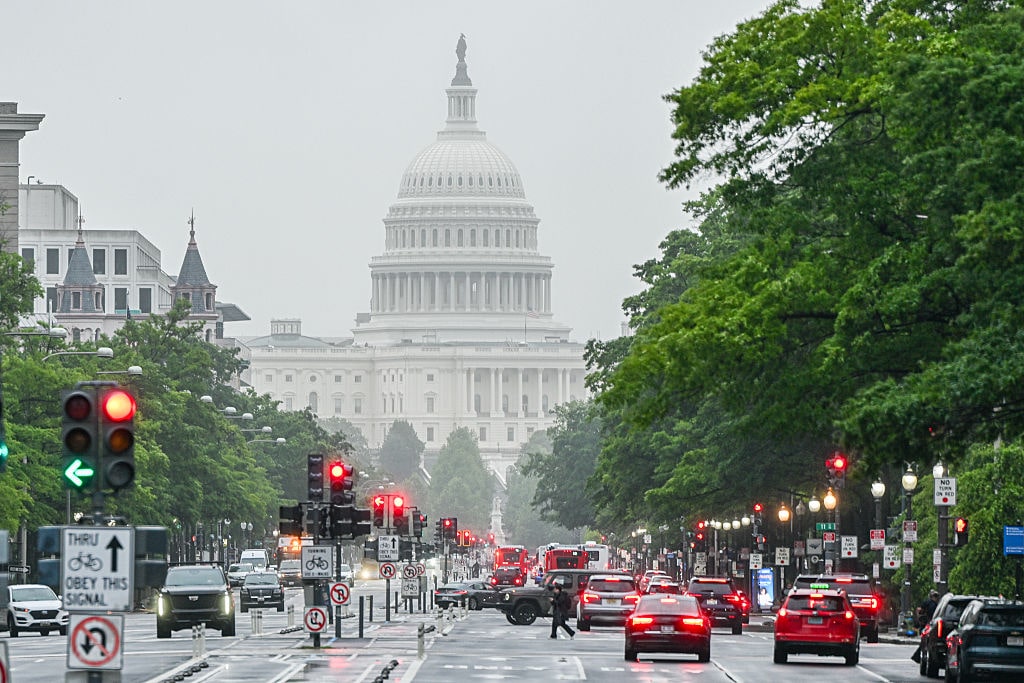
The capital’s status quo is a far cry from what they had in mind.
President Donald Trump has threatened to federalize Washington, DC, again. The backlash was immediate; the outrage is intense. But is local control of the nation’s capital really working out? Perhaps the more important question is whether it should be under federal control. It isn’t – nor was it ever supposed to be – a state, after all.
Federal Control for the Nation’s Capital?
The president has talked about federalizing the nation’s capital before – in fact, he has actually done it, to some degree, before. In 2020, the Trump administration deployed the National Guard to keep the peace after some of the massive protests over George Floyd’s death turned violent and destructive. Mayor Muriel Bowser opposed the move, but ultimately, she couldn’t stop him.
Now, after a well-known DOGE employee’s assault during an attempted carjacking, Trump’s talking about it again. “We have a capital that’s very unsafe, you know, we just almost lost a young man, beautiful, handsome guy that got the hell knocked out of him the night before last,” Trump told reporters at a White House event Wednesday, August 6. That might, he explained, even involve bringing in the National Guard.
Generally, each state’s National Guard reports to the governor as commander-in-chief, but the president can invoke either the Insurrection Act or USC Title 10 to federalize a state’s Guard. That’s not necessary, however, in the case of DC. As a federal district, the DC National Guard already reports to the president. Though operational command is usually delegated to the Secretary of Defense, the president remains commander-in-chief and can call the Guard into active service.
So, what exactly can Trump do?
As president, he can activate the National Guard to assist the DC Police Department. If he declares a crime emergency in the city, as his mention of crime suggests he might, he can take over the DC police entirely for 48 hours – with the option to extend up to a month.
Finally, harkening back to the days of Bill Clinton’s presidency, Trump could reinstate the Control Board. Clinton established the Board, a five-member authority that ran the entire city’s government from 1995 to 2001, to keep the District from going bankrupt due to mismanagement. The Control Board wasn’t removed, however, it just went dormant. If the president were to declare either a financial or crime emergency, he could reactivate it and appoint five people who would then have the power to overturn any law passed by the DC Council, including the day-to-day operations of governing the city.
‘Home Rule’ in DC – It’s Actually Not the Norm
For the federal government to take permanent control of the city, however, would require an act of Congress. Or perhaps we should say for the government to retake control, as indeed it was an act of Congress that granted “home rule” to begin with.
For many years, Democrats have worked ceaselessly to make DC the nation’s 51st state while Republicans struggle to keep it in line with the Constitution. Despite the left’s clarion call to grant statehood to DC, however, the District of Columbia is not, never was, and never was intended to be a state. And there’s a good reason behind that decision. The Founders envisioned the nation’s capital as a neutral, federal district, separate from any particular state’s influence. Furthermore, DC would be under direct control by the federal government. Yeah, you read that right – the District of Columbia was originally controlled directly by the federal government and didn’t have local leadership.
The US Constitution established the District of Columbia, which was governed directly by Congress until 1973. That’s just 52 years of so-called “home rule” out of the 236 years the Constitution has been in effect – less than a quarter of this nation’s existence.
President Trump told reporters that he already has lawyers looking into overturning the Home Rule Act. But the eventual outcome will likely be that, since Congress created the city government, only Congress can abolish it – and Republicans have introduced bills in both chambers to do exactly that.
Dig Deeper Into the Themes Discussed in This Article!
Liberty Vault: The Constitution of the United States
Liberty Nation does not endorse candidates, campaigns, or legislation, and this presentation is no endorsement.

















